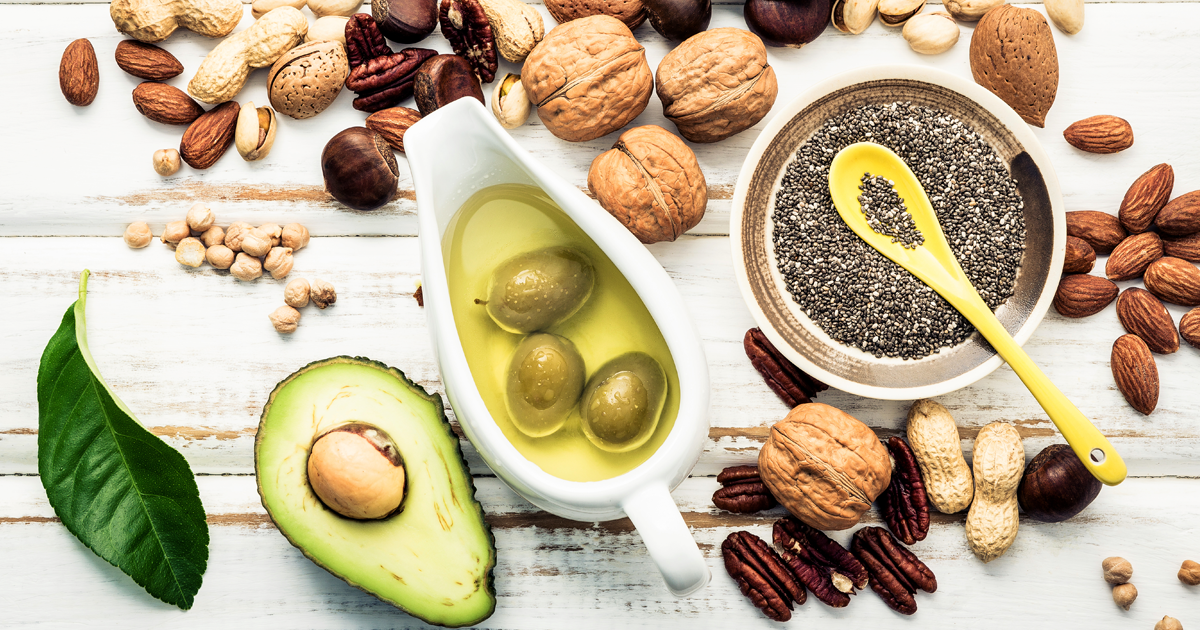.jpg)
Malnutrition is rife. When you break the numbers down, it is the number one killer today (1). But there are different kinds of malnutrition.
Among the wealthier nations, the industrial diet has triggered pandemics of non-communicable disease by overloading us with calories and seeding us with chronic inflammation, dysbiosis, glycemic overload and multiple micro- and phytonutrient depletion (ie 2).
The poorer nations suffer from a dual burden.
They are poisoned by ultra-processed foods in the same way that we are, but they also have to deal with under-nutrition and food insecurity (3). The two different kinds of malnutrition coexist in their societies, and often in the same individuals.
In 2020, 2.37 billion people (about a third of the global population) did not have access to adequate food (4), and it’s getting worse. The numbers of undernourished grew by 23% in the last 3 years alone (4), and acute food insecurity has doubled since 2019 (5). Undernutrition is coming to MENA (4) and to Europe too, as formerly wealthy nations bleed out on the altars of Lockheed Martin, Raytheon and General Dynamic (6).
The enormous and unnecessary waste of life and talent caused by our degraded food systems can be laid squarely at the feet of corrupt politicians, and the industries that rent them. The health and food sectors have been hollowed out to maximize the profits of a very few, at our expense. The shepherds we elected took their thirty pieces of silver and left their flocks to rot.
Grasping political hacks reject levies on cheap and unhealthy foods (7) while their regressive taxes force more into poverty (8), ensuring that waistlines and healthcare costs will continue to expand. Multinational food companies promote ‘healthy’ options which are actually sugar-coated lies (9) designed to feed our incompatible cravings for sweetness and safety.
World Action on Salt, Sugar and Health (WASSH) is funded by the National Institute for Health Research, headquartered in Queen Mary University of London and operates round the world. The latest WASSH survey (10) reveals that while the biggest multinational food companies claim to be concerned about our health, their profits largely depend on defective and toxic industrial food products which no independent nutritional scientist could approve of.
The multinationals fought back, and I have read their defense document. It is garbage.
Unable to polish their extruded waste products, these companies roll them in glitter (11). And they get us hooked young.
Many of today’s baby foods contain more sugar than Coca Cola (12, 13).
The British Dental Association calls this ‘obscene’ (12), and the Royal College of Paediatrics and Child Health terms it ‘a national disgrace’ (13). They are seeing rising dental decay, obesity, type 2 diabetes, asthma and high blood pressure in children, setting the stage for chronic ill health in later life. That’s bad enough, but more malnutrition is baked into the cake, for macroeconomic reasons.
Food prices hit record highs this year, increasing 33.6% from March ’21 to March ’22 and rising by 12.6% in March alone (14). They have been trending down since then (15), but any respite will be short-lived. Rising costs of fertilizer and diesel, poor harvests in many countries, misconceived policies against nitrogen emissions and a surprisingly high number of fires in food processing plants (ie 16) are pushing prices up again.
The declining value of most Western fiat currencies will make matters worse. In Europe, the boundless mediocrity of Habeck, Baerbock and Ursula van der Leichen have left many facing a hard spring choice of eating, heating or cheating. Food choices will become more restricted, diet quality will fall even further (17). And in the background, ‘science’ is being manipulated to fit the political agenda.
As Melissa Fleming, under-secretary for Global Communications at the United Nations explains (18), ‘We own the science’. This foolish and deeply unscientific position, which would not have been advocated by any true scientist (Fleming was a journalist of sorts) is backed by the World Economic Forum and Google, and its destructive results are already visible.
In the last 2 years, poorly designed data trawling exercises have ‘proved’ that consuming beef causes colorectal cancer, at least in black women (19), fish causes skin cancer (20), and milk causes breast (21) and prostate cancer (22). All nonsense, of course; the mid-Victorians lived as long as we do, consumed significantly larger amounts of these foods and yet had only 10% of the cancer we see today (23).
With regard to beef, today’s industrial diet degrades all of our many defenses against disease, leaving us vulnerable to minor insults such as the haem from red meat forming N-nitroso compounds in the gut (24). Our ancestors had no problem dealing with these compounds, due to their high consumption of prebiotic fiber, ascorbates and other chemo-protective phytonutrients, and the use of lower temperature cooking methods (25).
Their skins were protected by dietary UV-filtering carotenoids and polyphenols (26), and the spurious link between fish and skin cancer held no water. Their prostates and mammary glands were protected from the insidious dangers of milk, let alone cheese and (gasp) yoghurt.
The latter-day data trawlers either know nothing about our nutritional past, in which case they are educated fools; or they do know and are promoting their luxury beliefs (26), in which case they are knaves.
Having read their papers, I tend to the latter explanation. It is almost as if they are trying to distract us from the very real dangers of the ultra-processed, industrial foods which are driving our public health into the ground. There are so many studies which show this link; a very recent one just found a strong association between fast food consumption and stroke risk (27).
The fact is, the ultra-processed foods which continue to make inroads into our diet make us fragile, and vulnerable to stressors we were previously immune to. They have obliterated metabolic and other safety margins engineered into us by 6 million years of evolution, and have done so in the remarkably short period of a half century.
And then there is a psychological element.
Sickness has become so universal, obesity, allergy and intolerance so common and food so unnatural that we have become profoundly alienated from what we eat (28).
Numbers of individuals with eating disorders have doubled in the last 20 years, reaching 24 million in the USA alone (29). This is unsurprising, given that North Americans consume the highest amounts of ultra-processed foods (30).
Perhaps more surprising, to some, is the fact that eating disorders constitute one of the deadliest mental illnesses and are responsible for over 10,000 deaths a year (29). The deleterious effects of Covid lockdowns, which among other things made people’s eating disorders worse, were entirely predictable in this respect (31).
We have become afraid of bread, beer, butter, peanut butter, eggs, eggplant, salt, steak …
Even breakfast cereals, bland confectionery items generally reckoned safe for short-term human consumption, are triggering consumers consumed by nutritional paranoia (32, 33). Cibophobia (the fear of food) is increasing in parallel with the other anxiety disorders (ie 34), and unlike arachibutyrophobia (35), one cannot simply screw the lid back on the jar.
With the toxicity of ultra-processed foods increasingly becoming public knowledge, and with up to 40% of US adults showing some symptoms of food addiction to these products (36), worried and vulnerable customers are desperately seeking reassurance that their food won’t kill them.
The multinational food companies are spending vast sums of money to solve this problem. Not by making their foods healthier (10), but via advertising (10, 11).
The latest market data show that this strategy is working. Morning Consult recently released its first annual list of the most trusted brands in all consumer sectors. When 16,700 Americans were asked how much they trusted each brand ‘to do what is right’, they voted Chick-Fil-A, Hershey, Cheerios and M&M’s into the top tier (37)!
This same survey gave the execrable Tom Hanks a significantly better trust score than scientific studies and religious leaders, which is at least debatable, and placed news media and the US government in the ‘lower than whale shit’ category, which is completely correct. Sorry, Melissa.
The food industry belatedly ‘.. recognizes a need for private sector engagement through industry-led efforts with federal government, public advocates, academia, and other stakeholders’ (38). In September ’22 they proposed a ‘commitment to work together with these stakeholders to develop solutions for ending hunger, improving nutrition, and reducing diet-related diseases in America’ (38).
They then recommended it be largely operated by the deeply compromised FDA, in conjunction with the Rockefeller Foundation of the Great Reset, Agenda 2030 and central bank digital currencies.
It is safe to say that none of these organizations have our wellbeing at heart. In antiparallel with 19th century slave-owners, our 21st century masters can no longer afford to keep us free-range. Our rocketing rates of disease, caused largely by the products they sell us, has added hugely to employee and community healthcare costs which, in the context of globalization and creping AI, have to be cut back. We must, therefore, be bought to heel – the remarkable numbers of excess deaths in 2022 may play into this (39-42) – and shackled again, this time digitally.
If you are concerned for your health or for the health of your loved ones you can no longer trust government or governmental regulatory agencies. Nor can you trust the hospital system, which is becoming increasingly hazardous due to demand outstripping resources (43) and is rapidly approaching bankruptcy (44). And you can certainly not trust the politicians! Instead, fight back.
This does not necessarily involve taking to the streets.
All you have to do, at this stage, is change the way you shop. Boycott ultra-processed products. Don’t position them as treats for children. Grow your own food if you can, shop at farmers’ markets if you can’t. Discover the joy of real foods and the many psychological, health and cosmetic benefits they confer.
Alternatively, use antidotes such as those provided by the Health Protocol. They don’t taste as good, but are likely as or more effective. Combined with a direct marketing platform, they can also lead to gainful self-employment.
Written by Dr. Paul Clayton
References
- GBD 2015 Risk Factors Collaborators. Global, regional, and national comparative risk assessment of 79 behavioural, environmental and occupational, and metabolic risks or clusters of risks, 1990-2015: a systematic analysis for the Global Burden of Disease Study 2015. Lancet. 2016 Oct 8;388(10053):1659-1724.
- Stevens GA, Beal T, Mbuya MNN, Luo H, Neufeld LM; Global Micronutrient Deficiencies Research Group. Micronutrient deficiencies among preschool-aged children and women of reproductive age worldwide: a pooled analysis of individual-level data from population-representative surveys. Lancet Glob Health. 2022 Nov;10(11):e1590-e1599.
- Popkin BM, Corvalan C, Grummer-Strawn LM. Dynamics of the double burden of malnutrition and the changing nutrition reality. Lancet. 2020 Jan 4;395(10217):65-74.
- https://www.fao.org/sustainable-development-goals/indicators/211/en/Accessed 13.11.22
- https://www.nutritioninsight.com/news/global-hunger-red-alert-world-food-programme-warns-food-insecurity-has-doubled-requests-financial-support.html?vgo_ee=g219MaSUbHk4geidYV19ck1bYDntUN5af8fo0yIFwFg%3D
- https://news.un.org/en/story/2022/04/1115762
- https://www.nutritioninsight.com/news/inflating-health-concerns-europes-new-leaders-sideline-junk-food-taxes-amid-cost-of-living-crisis.html?vgo_ee=g219MaSUbHk4geidYV19ck1bYDntUN5af8fo0yIFwFg%3DAccessed 17.1.23
- Hope D, Limberg J. (2020) The economic consequences of major tax cuts for the rich. International Inequalities Institute Working Papers (55). London School of Economics and Political Science, London, UK.
- https://www.kelloggsawayfromhome.com/en_US/products/kellogg-s-nutri-grain-cereal-bars-strawberry-product.html#:~:text=Whole%20wheat%20flour%2C%20invert%20sugar,puree%20concentrate%2C%20dextrose%2C%20fructose. Accessed 7.10.22
- https://www.worldactiononsalt.com/news/news/2023/2023-news-section/worlds-biggest-food-manufacturers-over-reliant-on-sales-of-unhealthy-foods–new-analysis-reveals.htmlAccessed 3.2.23
- https://www.cerealously.net/kelloggs-together-with-pride-cereal/ Accessed 3.2.23
- https://bda.org/news-centre/latest-news-articles/Pages/Dentists-call-for-sweeping-action-on-baby-pouches.aspxAccessed 12.2.23
- https://www.nutritioninsight.com/news/national-disgrace-uk-pediatrics-fed-up-with-distressing-levels-of-sugar-and-salt-in-baby-foods.html Accessed 12.2.23
- https://www.zerohedge.com/commodities/global-food-prices-hit-new-record-ukraine-supply-shock Accessed 8.4.22
- https://www.fao.org/worldfoodsituation/foodpricesindex/en/Accessed 23.11.22
- https://www.westernstandard.news/news/exclusive-destruction-of-food-plants-a-global-phenomenon/article_d795f4fe-88ef-57a4-a671-957b584fb147.html Accessed 2.22.22
- Darmon N, Drewnowski A. Does social class predict diet quality? Am J Clin Nut (2008), 87(5):1107-17.
- https://www.weforum.org/events/sustainable-development-impact-meetings-2022/sessions/tackling-disinformation
- Yiannakou I, Barber LE, Li S, Adams-Campbell LL, Palmer JR, Rosenberg L, Petrick JL. A Prospective Analysis of Red and Processed Meat Intake in Relation to Colorectal Cancer in the Black Women’s Health Study. J Nutr. 2022 May 5;152(5):1254-1262
- Li Y, Liao LM, Sinha R, Zheng T, Vance TM, Qureshi AA, Cho E. Fish intake and risk of melanoma in the NIH-AARP diet and health study. Cancer Causes Control. 2022 Jul;33(7):921-928.
- Fraser GE, Jaceldo-Siegl K, Orlich M, Mashchak A, Sirirat R, Knutsen S. Dairy, soy, and risk of breast cancer: those confounded milks. Int J Epidemiol. 2020 Oct 1;49(5):1526-1537.
- Orlich MJ, Mashchak AD, Jaceldo-Siegl K, Utt JT, Knutsen SF, Sveen LE, Fraser GE. Dairy foods, calcium intakes, and risk of incident prostate cancer in Adventist Health Study-2. Am J Clin Nutr. 2022 Aug 4;116(2):314-324.
- Clayton P, Rowbotham J. How the mid-Victorians worked, ate and died. Int J Environ Res Public Health. 2009 Mar;6(3):1235-53.
- Bouvard V, Loomis D, Guyton KZ, Grosse Y, Ghissassi FE, Benbrahim-Tallaa L, Guha N, Mattock H, Straif K; International Agency for Research on Cancer Monograph Working Group. Carcinogenicity of consumption of red and processed meat. Lancet Oncol. 2015;16(16):1599–600.
- Calniquer G, Khanin M, Ovadia H, Linnewiel-Hermoni K, Stepensky D, Trachtenberg A, Sedlov T, Braverman O, Levy J, Sharoni Y. Combined Effects of Carotenoids and Polyphenols in Balancing the Response of Skin Cells to UV Irradiation. Molecules. 2021 Mar 30;26(7):1931.
- https://podcasts.apple.com/us/podcast/how-luxury-beliefs-hurt-the-rest-of-us/id1570872415?i=1000540733255Accessed 5.1.23
- Yang D, Naqvi A, Gutierrez J, Tom S. Data presented at American Stroke Association International Stroke Conference, Dallas 2023.2.8-10
- Fischler C. Food, self and identity. Soc Sci Info 27 (2):275-292 (1988).
- Galmiche M, Déchelotte P, Lambert G, Tavolacci MP. Prevalence of eating disorders over the 2000-2018 period: a systematic literature review. Am J Clin Nutr. 2019 May 1;109(5):1402-1413.
- Marino M, Puppo F, Del Bo’ C, Vinelli V, Riso P, Porrini M, Martini D. A Systematic Review of Worldwide Consumption of Ultra-Processed Foods: Findings and Criticisms. Nutrients. 2021 Aug 13;13(8):2778.
- Termorshuizen JD, Watson HJ, Thornton LM, Borg S, Flatt RE, MacDermod CM, Harper LE, van Furth EF, Peat CM, Bulik CM. Early impact of COVID-19 on individuals with self-reported eating disorders: A survey of ~1,000 individuals in the United States and the Netherlands. Int J Eat Disord. 2020 Nov;53(11):1780-1790.
- https://iwaspoisoned.com/tag/lucky-charms
- https://iwaspoisoned.com/tag/cheeriosAccessed 2.2.23
- Goodwin RD, Weinberger AH, Kim JH, Wu M, Galea S. Trends in anxiety among adults in the United States, 2008-2018: Rapid increases among young adults. J Psychiatr Res. 2020 Nov;130:441-446.
- https://www.healthline.com/health/anxiety/arachibutyrophobia
- University of Michigan National Poll of Healthy Eating. Jan/Feb 2023. https://deepblue.lib.umich.edu/bitstream/handle/2027.42/175578/0298_NPHA-Addictive-Eating-report-FINAL-doi.pdf?sequence=4&isAllowed=y
- https://morningconsult.com/most-trusted-brands-report/Accessed 2.2.23
- The White House Conference on Hunger, Nutrition and Health: Food Industry Contributions, Recommendations & Commitments.https://www.fmi.org/docs/default-source/communications-uploads/whc–food-industry-contributions-recommendations-and-commitments-september-2022.pdf?sfvrsn=3fd19415_2
- https://www.youtube.com/watch?v=u4Pi7DCSn2c Accessed 5.2.23
- https://jdee.substack.com/p/ons-vaccination-deaths-analysis?r=6vyrt&utm_medium=ios&utm_campaign=postAccessed 4.2.23
- https://covidreason.substack.com/p/england-data-confirms-vax-has-notAccessed 4.2.23
- Turni C, Lefringhausen A. (2022). COVID-19 vaccines – an Australian review. Journal of Clinical and Experimental Immunology 7 (3) 491-508.
- Jones S, Moulton C, Swift S, Molyneux P, Black S, Mason N, Oakley R, Mann C. Association between delays to patient admission from the emergency department and all-cause 30-day mortality. Emerg Med J. 2022 Mar;39(3):168-173.
- https://www.beckershospitalreview.com/finance/health-system-cash-reserves-plummet.html?origin=BHRE&utm_source=BHRE&utm_medium=email&utm_content=newsletterAccessed 20.12.22



